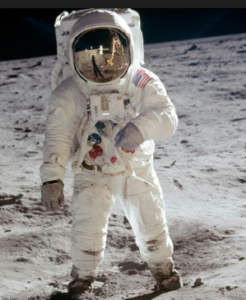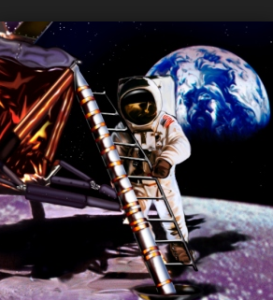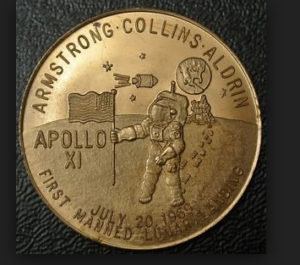S. Elliot once said: Explore … only those who risk going too far can find out how far one can go. Right on the mark, yes? Are you a baby boomer? Remember the manned lunar landing? If so, my question to you is whether you remember where you were when Neil Armstrong first stepped onto the moon, July 20, 1969.

It marked the success of man’s manned lunar landing resources. Can you remember the details of this colossal event?
Study these: 14 Ways to be Creative on Technology Projects
Here are a few interesting historical facts about the event and an interesting story about Neil Armstrong that most people probably have never heard.
First manned lunar landing … historical background
Let’s start with a little background on how the United States got into this pseudo competition. As the Soviet Union mastered manned space flight in a series of early orbital missions, the Moon quickly became a key goal of the manned space program.
In May 1961, President Kennedy proclaimed a manned landing on the surface of the Moon before 1970, as the main goal of the US space program.
It is interesting to note that the first human-made object to reach the surface of the Moon was the Soviet Union‘s Luna 2 mission, on 13 September 1959, two years before Kennedy’s famous goal statement.
However, it took more than three years after Kennedy’s challenge for the cash-strapped Soviet government to commit needed resources for the Moon Race. “Do not leave the Moon to the Americans,” Nikita Khrushchev reportedly told leaders of the Soviet rocket industry, “
Anything you need to do it will be provided.” On Aug. 3, 1964, the Soviet government finally gave the full go-ahead to the lunar landing effort.
The United States’ Apollo 11 was the first human-crewed mission to land on the Moon, on 20 July 1969.
There have been six manned U.S. landings (between 1969 and 1972) and numerous unmanned landings, with no soft landings happening from 1976 until 14 December 2013.
Manned lunar landing resources … a daunting mission
At first, a moon-landing mission probably raised a lot of eyebrows at NASA—, particularly among the astronaut candidates.
Atlas rockets [which launched spacecraft] were blowing up every day at Cape Canaveral in Florida, recalled Apollo 13 astronaut Jim Lovell in the 2007 documentary In the Shadow of the Moon.

It looked like a … a quick way to have a short career.
Buzz Aldrin, the second astronaut to step onto the moon during this Apollo 11 mission, insists that he felt no real fear about landing on the moon.
Nevertheless, he said about the first two hours after the landing:
We kind of practiced liftoff [for] the first two hours. … We both felt that was the most prudent thing to do after touching down, was to prepare to depart if we had to.
First manned lunar landing … moon race technology
The Apollo mission computers had less processing power than the cell phone today. That is an amazing fact, isn’t it? It gives a whole perspective to the mission challenge, doesn’t it?
When Apollo 11’s lunar lander, the Eagle, separated from the orbiter, the cabin wasn’t fully depressurized, resulting in a burst of gas equivalent to popping a champagne cork. It threw the module’s landing four miles off-target.
Sears made the flag, but NASA refused to acknowledge this because they didn’t want “another Tang” product issue to deal with.
An interesting story about Neil Armstrong at the landing:

ON JULY 20, 1969, AS COMMANDER OF THE APOLLO 11 LUNAR MODULE, NEIL ARMSTRONG WAS THE FIRST PERSON TO SET FOOT ON THE MOON.
HIS FIRST WORDS AFTER STEPPING ON THE MOON,
THAT’S ONE SMALL STEP FOR MAN, ONE GIANT LEAP FOR MANKIND,
WERE TELEVISED TO EARTH AND HEARD BY
MILLIONS.*
BUT JUST BEFORE HE RE-ENTERED THE LANDER, HE MADE THE ENIGMATIC REMARK:
GOOD LUCK, MR. GORSKY
MANY PEOPLE AT NASA THOUGHT IT WAS A CASUAL REMARK CONCERNING SOME RIVAL SOVIET COSMONAUT. HOWEVER, UPON CHECKING, THERE WAS NO GORSKY IN EITHER THE RUSSIAN OR AMERICAN SPACE PROGRAMS.
OVER THE YEARS, MANY PEOPLE QUESTIONED ARMSTRONG AS TO WHAT THE – ‘GOOD LUCK, MR. GORSKY’ STATEMENT MEANT, BUT ARMSTRONG ALWAYS JUST SMILED.
ON JULY 5, 1995, IN TAMPA BAY, FLORIDA, WHILE ANSWERING QUESTIONS FOLLOWING A SPEECH, A REPORTER BROUGHT UP THE 26-YEAR-OLD QUESTION ABOUT Mr. Gorsky TO ARMSTRONG.
THIS TIME HE FINALLY RESPONDED BECAUSE MR. GORSKY HAD DIED, SO NEIL
ARMSTRONG FELT HE COULD NOW ANSWER THE QUESTION.
HERE IS THE ANSWER TO ‘WHO WAS MR. GORSKY?’:
IN 1938, WHEN HE WAS A KID IN A SMALL MID-WESTERN TOWN, HE WAS PLAYING BASEBALL WITH A FRIEND IN THE BACKYARD. HIS FRIEND HIT THE BALL, WHICH LANDED IN HIS NEIGHBOUR’S YARD BY THEIR BEDROOM WINDOW.
HIS NEIGHBOURS WERE MR. AND MRS. GORSKY.
AS HE LEANED DOWN TO PICK UP THE BALL, YOUNG ARMSTRONG HEARD MRS. GORSKY SHOUTING AT MR. GORSKY,
SEX! YOU WANT SEX?! YOU’LL GET SEX WHEN THE KID NEXT DOOR WALKS ON THE MOON!
It broke the place up.
NEIL ARMSTRONG’S FAMILY CONFIRMED THIS IS A TRUE STORY. But who knows? Several sources claim it is not true.
Either way, it is a very humorous story and one that I can see Armstrong telling, can’t you?
